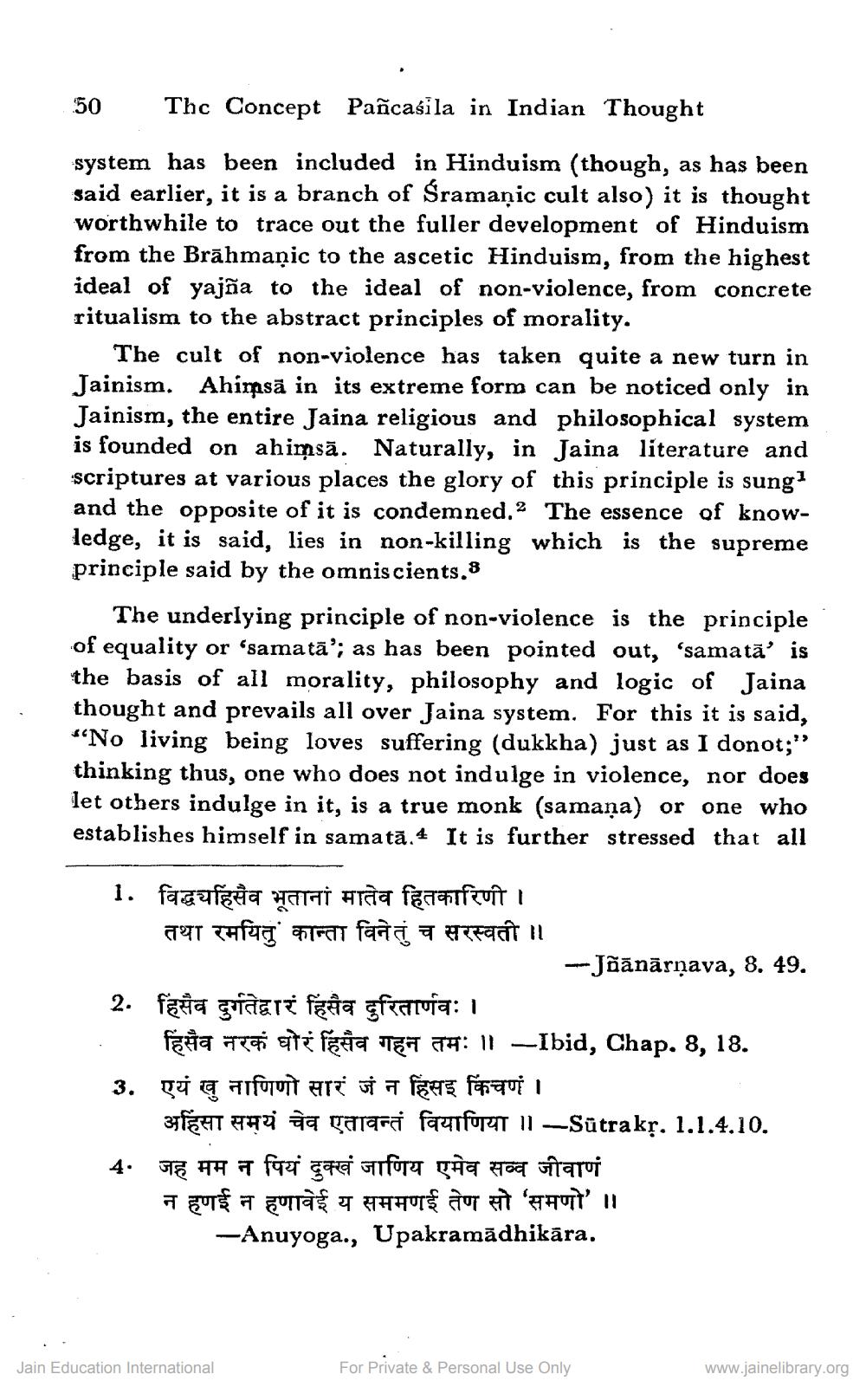________________
The Concept Pancasila in Indian Thought
system has been included in Hinduism (though, as has been said earlier, it is a branch of Śramanic cult also) it is thought worthwhile to trace out the fuller development of Hinduism from the Brāhmaṇic to the ascetic Hinduism, from the highest ideal of yajña to the ideal of non-violence, from concrete ritualism to the abstract principles of morality.
50
The cult of non-violence has taken quite a new turn in Jainism. Ahimsa in its extreme form can be noticed only in Jainism, the entire Jaina religious and philosophical system is founded on ahimsa. Naturally, in Jaina literature and scriptures at various places the glory of this principle is sung1 and the opposite of it is condemned. The essence of knowledge, it is said, lies in non-killing which is the supreme principle said by the omniscients.8
The underlying principle of non-violence is the principle of equality or 'sama ta'; as has been pointed out, 'samata' is the basis of all morality, philosophy and logic of Jaina thought and prevails all over Jaina system. For this it is said, "No living being loves suffering (dukkha) just as I donot;" thinking thus, one who does not indulge in violence, nor does let others indulge in it, is a true monk (samaņa) or one who establishes himself in samatā.4 It is further stressed that all
1. विद्धयहिसैव भूतानां मातेव हितकारिणी । तथा रमयितुं कान्ता विनेतुं च सरस्वती ॥
2. हिसैव दुर्गतेद्वारं हिंसैव दुरितार्णवः ।
हिसैव नरकं घोरं हिसैव गहन तमः ॥ - Ibid, Chap. 8, 18.
-Jñānārṇava, 8. 49.
3. एयं खु नाणिणो सारं जं न हिंसइ किंचणं ।
अहिंसा समयं चैव एतावन्तं वियाणिया | Sūtrakr. 1.1.4.10.
4.
जह मम न पिय दुक्खं जाणिय एमेव सव्व जीवाणं
न हई न हणावेई य सममणई तेण सो 'समणो' ॥
-Anuyoga., Upakramādhikāra.
Jain Education International
For Private & Personal Use Only
www.jainelibrary.org




